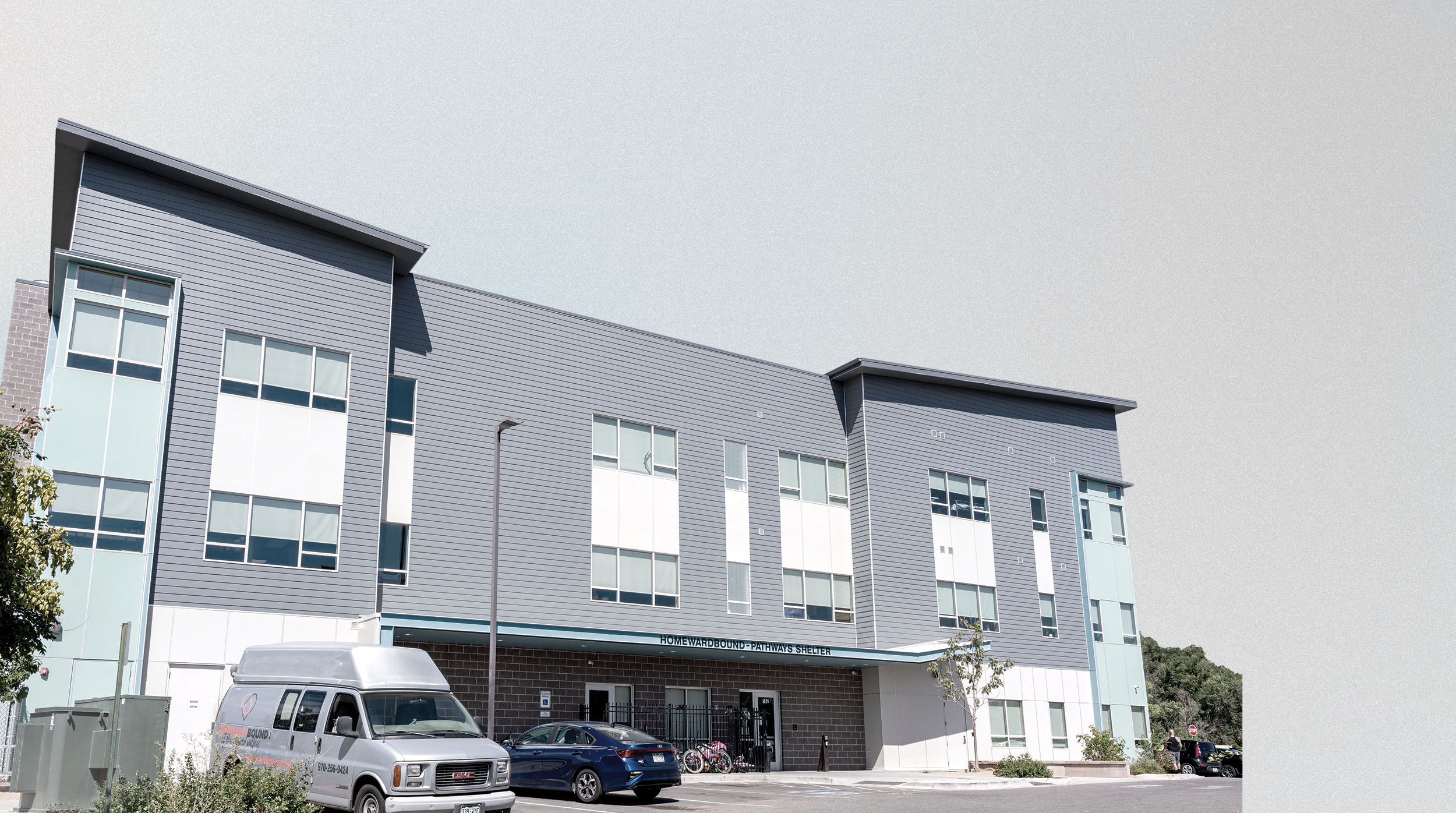CMU faculty member Lucy Graham, PhD, serves the underserved
Throughout the span of her 33-year nursing career, Lucy Graham, PhD, MPH, RN, has dedicated herself to serving the underserved — from supporting those with HIV and AIDs to ensuring that people experiencing homelessness have access to primary care in a safe and consistent setting.
Currently the CMU Department of Health Sciences director, Graham has spent the last four years facilitating a partnership between CMU, St. Mary’s Regional Hospital (now Intermountain Healthcare) and HomewardBound of the Grand Valley to operate the Pathways Family Wellness Center (PFWC) within the Pathways Family Shelter.
The PFWC took shape in early 2020 when Graham wrote a grant to establish a “nurse-led, behaviorally integrated” clinic. The goal of the clinic: to provide clinical care led by RNs and nurse practitioners rather than doctors, and to be behaviorally integrated ensuring patients receive holistic care that considers all their needs.
“[Nurse-led, behaviorally integrated clinic] is a term that describes the nurse clinician and the behavioral clinician working together to address patient issues such as homelessness, trauma, substance abuse, chronic health conditions and assistance with accessing services such as Medicaid,” explains Graham. “You’re not going to take care of your health if you don’t know where your next meal is coming from or where you’re sleeping that night,” she added.
Under the grant, Graham does not provide clinical services but acts as the grant administrator and chief investigator. Ona Ridgway, DNP, a family and psychiatric nurse practitioner, serves as the clinic’s lead provider and has been with the clinic since it was founded.
As an educator at CMU, Graham is especially focused on the available training at the clinic for undergraduate nursing students, graduate nurse practitioners and physician assistant students.
“Without this opportunity, our students have almost no exposure to outpatient care of a very vulnerable population,” said Graham. “They might see them in an acute care setting, but they don’t really get to see and understand their day-to-day struggles. Really hearing their stories and spending time with patients to understand their needs is a very different experience.”
Working at the clinic also provides students with a valuable opportunity to address their own biases around homelessness, while practicing what Graham calls “compassionate, nonjudgmental care delivery.”
As for health outcomes, Justin McCarthy, MD, a faculty physician at Intermountain Healthcare Family Medicine Residency and a clinic volunteer and member of the Pathways Family Clinic Advisory Board, sees many benefits.
“Lucy was visionary in pairing an opportunity for a nurse-driven clinic while meeting a dire need in the Grand Valley. Our homeless community lacked access to care outside of basic acute care. The services provided by the Pathways clinic are standard-of-care. We had been settling for far less for many years before this clinic,” said McCarthy.
McCarthy added, “When homeless individuals only have care available through the emergency department it does little good for continuity, managing chronic conditions or building rapport between those individuals and the healthcare industry. Having a clinic of trauma-informed, experienced providers has been key in engendering that trust.”
To date, more than 300 CMU students have had hands-on clinical experiences at PFWC. The clinic has averaged more than 700 patient visits a year for the past four years, for a total of over 1,000 unduplicated patients.
By any measure, the clinic has been a success for patients, students, healthcare providers and the Mesa County community. With grant funding running out, the PFWC is now under the auspices of the Mesa County Health Department. This will ensure its sustainability while maintaining the partnerships with CMU, Intermountain Healthcare’s Family Practice and HomewardBound of the Grand Valley.
“The clinic makes our community healthier and stronger,” said Graham.
